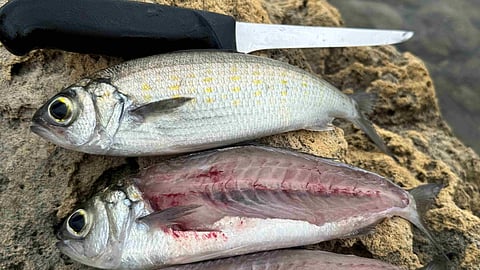WA recreational fishers encouraged to donate fish frames to support scientists' stock assessments
Recreational fishers in Western Australia are being encouraged to donate fish frames from Australian herring, King George whiting and southern garfish to provide fisheries scientists with important biological information to support stock assessments.
In particular, WA Department of Primary Industries and Regional Development (DPIRD) researchers are looking for fish frames or fish heads from these species caught in waters off the west and south coasts.
DPIRD said the program is a way for researchers to collect vital information – like fish ages, growth rates and size at maturity – from a broad range of locations across the state.
When donating filleted frames, recreational fishers are asked to keep the head, guts, and gonads of the fish intact. This can provide valuable information on peak spawning times.
Sample bags and labels can be collected from DPIRD offices or participating tackle stores, and donations can be provided either fresh or frozen.
DPIRD Senior Research Scientist Daniel Yeoh said the program had been a long-standing research tool to monitor various WA fish species.
"We are now collecting samples of important nearshore finfish species to gather biological information that will give us a better understanding of these fish populations and how they are changing over time," Dr Yeoh said.
"For these assessments we collect data from commercial and recreational fishers, as well as conduct our own research sampling programs."
Dr Yeoh recommends that, to provide as much information as possible when donating fish frames, fishers must also include the location where the fish was caught, and to indicate whether they were fishing from shore or a boat at the time.
"Science-based decision making requires good quality data, and the more recreational fishers can help us by donating frames, the better we can ensure there’s fish for the future," said Dr Yeoh.
For more details on the research and where fish skeletons or heads can be dropped off, kindly click here.


